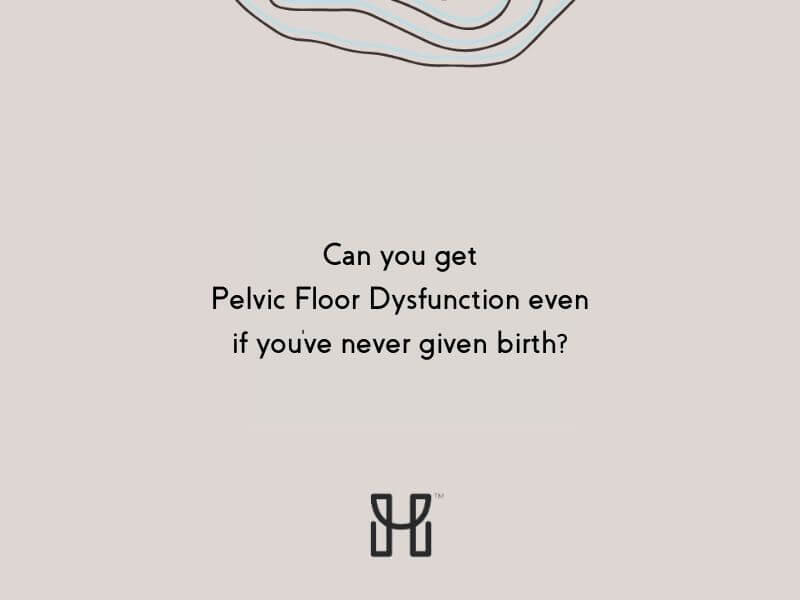Even though pelvic floor dysfunction affects millions of women, far too many women are unaware of the condition and suffer in silence. And many of the women who are aware of pelvic floor problems like organ prolapse don’t understand what causes them.
It’s important for women to understand that they can get pelvic floor dysfunction, even if they have never been pregnant or given birth. While pregnancy and vaginal birth often contribute to pelvic floor disorders, they are not the only causes. All women need to be proactive about their pelvic health, including women who have not had sexual intercourse and women who have never been pregnant.
What is Pelvic Floor Dysfunction and What Causes it?
The pelvic floor is the string of muscles that support your pelvic organs – namely, your bladder, reproductive organs and bowels. It is also responsible for bladder and bowel control.
Just like any muscles, the pelvic floor muscles can become injured or too weak to function properly. When this happens, women experience pelvic floor disorders ranging from bladder or bowel leakage to pelvic organ prolapse.
There are many factors that contribute to your pelvic floor health, including your age, genetics and some surgeries.
And yes, pregnancy and childbirth can absolutely put pressure on your pelvic floor and lead to dysfunction.
But childbearing is just one of many things that can put pressure on your pelvic floor.
Ultimately, anything that puts strain on the pelvic floor can lead to pelvic floor dysfunction.
Things That Cause Pelvic Floor Dysfunction Beyond Childbirth
Let’s explore some causes of pelvic floor disorder that can affect any woman, so that you can be proactive about protecting this critical area of your body.
Potential causes of pelvic floor disorder include:
1. Heavy Lifting
Because heavy lifting and exercises like running and jumping can put strain on your pelvic floor muscles, they can lead to disorders.
If you are an extremely active woman or one who likes to lift heavy, consider adjusting how much you lift, especially if you currently have a disorder or at risk for developing one.
That said, exercise is still critically important for maintaining good pelvic health. Learn more about exercising and pelvic floor disorders here.
And remember that heaving lifting takes place outside the gym all the time. Mothers lift their kids up and down all day, and many women have to lift heavy objects at work.
It’s not always possible to avoid heavy lifting, so anytime you lift, be sure to breathe deeply, use your legs and glutes and try to maintain good lifting posture. Always use your best judgment, and ask for help when you need it.
2. Chronic Straining
If you are often constipated and regularly strain to have bowel movements, seek help. Straining to force bowel movements puts pressure on your pelvic floor muscles and can lead to problems down the line.
3. Obesity
Extra weight can also put extra pressure on your pelvic floor muscles. Loosing weight is a great non-invasive way to start treating these conditions.
4. Chronic Coughing
Think about it: when you cough, you feel it in your abdomen, don’t you? Chronic coughing exerts regular pressure on the pelvic floor, which can lead to dysfunction. Be sure to manage conditions like asthma, chronic bronchitis and cystic fibrosis to keep coughing in check. And please quit smoking if you do.
Notice that most of the causes of pelvic floor dysfunction have to do with lifestyle choices. That’s why we encourage all women to stay healthy, and to be proactive about their pelvic health. Thankfully, there are so many ways to treat pelvic floor dysfunction. If you’d like to find a specialist near you, don’t miss our Physician Finder.




















